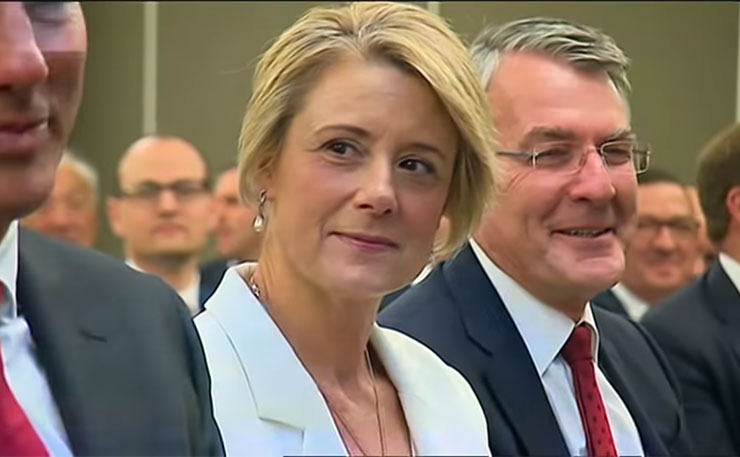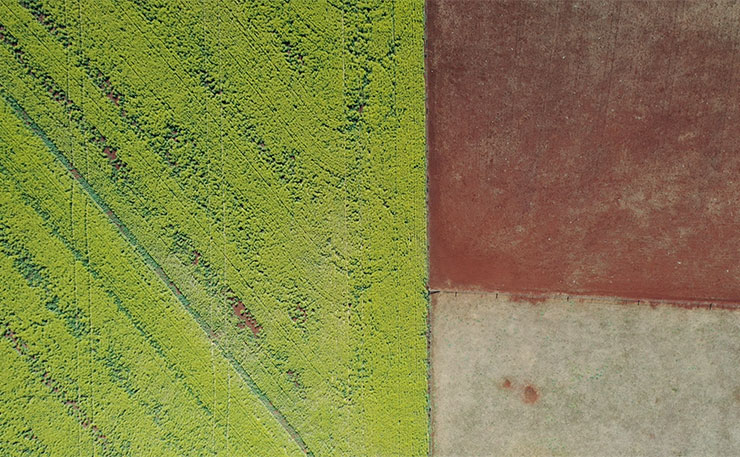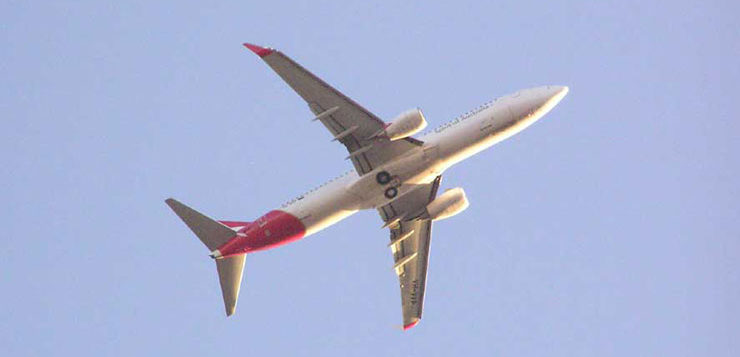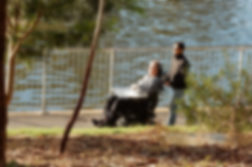DON’T MISS ANYTHING! ONE CLICK TO GET NEW MATILDA DELIVERED DIRECT TO YOUR INBOX, FREE!
The federal Opposition is trying to distract you with their latest refugee rhetoric, writes Sanmati Verma.
It happened like clockwork. After a comprehensive election defeat, Labor retreated to its backrooms, and emerged with a further rightward agenda, blaming the election defeat on overambitious climate policy, and vowing to end ‘class war’ by focussing on the ‘shared interests of unions and employers.’
Labor’s post-election immigration policy rests on dual planks – a seeming softening of its stance on offshore detention, signified by its support of ‘Medevac’ arrangements to see sick asylum seekers off Nauru and Manus, offset with a simultaneous crackdown against people arriving by plane and seeking asylum.
According to Labor’s Home Affairs spokesperson, Kristina Keneally, over 80,000 people have arrived by air between 1 July 2014 and 31 January 2019. Of those, Keneally suggests that 90 percent are denied asylum. These figures, Keneally suggests, provide definitive proof that ‘people smugglers’ have shifted their ‘business model’ to air transportation, and are importing a senseless army of workers to Australia for the purposes of exploitation.

Something needs to be done, according to Labor, to regain control over Australia’s ‘air borders’ and put an end to the needless suffering of those brought to Australia against their will for work.
The ensuing debate over the past several weeks has focussed on numbers, and whether or not Labor is historically well-placed to articulate a fair and humane asylum policy. However, the panic regarding ‘plane arrivals’ deserves closer and more careful examination.
Even on its own terms, the ‘plane arrival’ rhetoric does not hang together. The Department of Home Affairs makes its asylum figures publicly available. 81,000 is close to the total number of people who arrived by plane between 1 July 2014 and 31 January 2019, and some groups, depending on nationality, had extremely high approval rates for asylum. For instance, protection visa applications by Libyan and Syrian nationals were approved at a rate of 93 and 90 percent respectively in the past program year.
While the approval rates for Malaysian and Chinese nationals are low, Labor’s rhetoric conceals the role of Australia’s asylum determination process in ensuring that is the case. For several years, the Department of Home Affairs has instituted a policy of refusing asylum interviews to applicants from national cohorts where asylum grants are low. The policy is obviously self-fulfilling – people who are unable to present their claims at an interview are unable to defend them, which leads to their refusal.
Claims raised late during the review process are routinely disbelieved. Where people have been assisted by intermediaries to complete their initial protection application immediately on arrival in Australia, they may of course be uncomfortable and reluctant to fully articulate their reason for leaving home.
Feeling bound by their initial claims, applicants can float unrepresented through an entire asylum determination process without feeling safe and able to express their reasons for flight. This phenomenon most obviously effects women and LGBTIQ+ people, who are most often in need of protection from return to China and Malaysia.
But most importantly, Labor’s ‘plane arrival’ campaign is designed to mystify the phenomenon of migrant worker exploitation, precisely who coordinates and benefits from it.

As Labor would have it, the ‘people smuggler’ who dupes Malaysian and Chinese asylum seekers into travel to Australia also inserts them into an exploitation chain involving transnational crime syndicates, so that Australian industry and employers are hardly involved at all. It is an elaborate ploy by smugglers to carry out exploitation on Australian shores, for entirely foreign benefit.
But anyone paying attention to farm worker protests for the past five years would be keenly aware that Australia’s farming industry has become structurally reliant on the labour of temporary and undocumented migrant workers from South East Asia and China – precisely the ‘plane arrivals’ subject of Labor’s attack.
In an Australian Research Council funded report released earlier this year, farmers openly admit to employing undocumented workers to fill labour shortages. A grower from Waneroo cited in the report states in bald terms:
If we take them [undocumented workers]out, I don’t know what the level beyond crisis is, but that’s where we’re at. The reason I’ve cut back [on production]is because I cannot get enough legitimate workers and I cannot afford to take the risk of dealing with the people that are questionable.
Conditions on farms are often slave-like, with workers labouring in extreme weather conditions for long hours, and receiving as little as $4.60 per hour after multiple unlawful deductions. But on the back of this wide scale exploitation, Australia’s horticulture sector continues to experience healthy growth – agriculture is the most significant domestic contributor to Australia’s GDP, with a gross value of around $60 billion.
BE PART OF THE SOLUTION: WE NEED YOUR HELP TO KEEP NEW MATILDA ALIVE. Click here to chip in through Paypal, or you can click here to access our GoFundMe campaign.
These are the deeper ideological questions posed by the ‘plane arrival’ debate: is our solidarity contingent upon the satisfaction of a bureaucratic definition, and limited to ‘genuine refugees’? Is there a distinction between crossing borders to escape war and doing the same to escape economic circumstances made unliveable by the vestiges of colonialism, climate change or neoliberal reform?
These questions will become all the more pressing, as neighbouring countries in the Pacific bear the disastrous effects of climate change, and look to Australia as the closest point of refuge in the global North.
Unlike the dead at sea, the victims of exploitation whom Labor would seek to conjure in support of draconian migration reform are already here, and they are able to speak. Migrant farm workers have been protesting their conditions for years, and levelling demands, not at people smugglers, but the economy and state which benefit from their exploitation.
These demands encompass an amnesty against deportation, re-processing of asylum claims, and visas based on their invaluable work, with access to permanent residency.
Most importantly, the demands are far-reaching and recognise no categorical distinction between migration and asylum, viewing the migration regime as a whole as a source of exploitation and segmentation.
Shawfikul Islam, an organiser with the National Union of Workers*, puts it this way:
Our campaign is about dignity. These people are doing hard work for the community. Through Australian history migrant workers and refugees have been a big part of helping develop the country….
Our policy is built around an amnesty and a transition of Malaysians and Indonesians onto their own seasonal worker programme similar to the one currently available for workers from the pacific.
We believe our policy would lead some people to obtaining permanent residency and others to at least have a legal way to work in Australia and potentially an opportunity to continue working here on an ongoing basis.
The amnesty is just one aspect of the visa reform we are suggesting. We also want to see the SHEV and TPV visas abolished so that those that came by boat can follow a normal protection visa pathway and be able to claim their rights as a refugee.
Additionally we think all temporary visa workers need protections built in around access to unions and civil society and we think visas that restrict someone’s capacity to work like the student visa and the working holiday visa also need reform so that people are not separated and restricted from enforcing their workplace rights.
We would like to see the mandatory 88 days in regional areas abolished for working holiday makers.
These demands deserve our solidarity and attention, rather than debates regarding who is and is not a ‘genuine refugee.’
* Sanmati Verma works past-time for the NUW as a migration lawyer protecting the rights of farm workers.
BE PART OF THE SOLUTION: WE NEED YOUR HELP TO KEEP NEW MATILDA ALIVE. Click here to chip in through Paypal, or you can click here to access our GoFundMe campaign.
Donate To New Matilda
New Matilda is a small, independent media outlet. We survive through reader contributions, and never losing a lawsuit. If you got something from this article, giving something back helps us to continue speaking truth to power. Every little bit counts.




